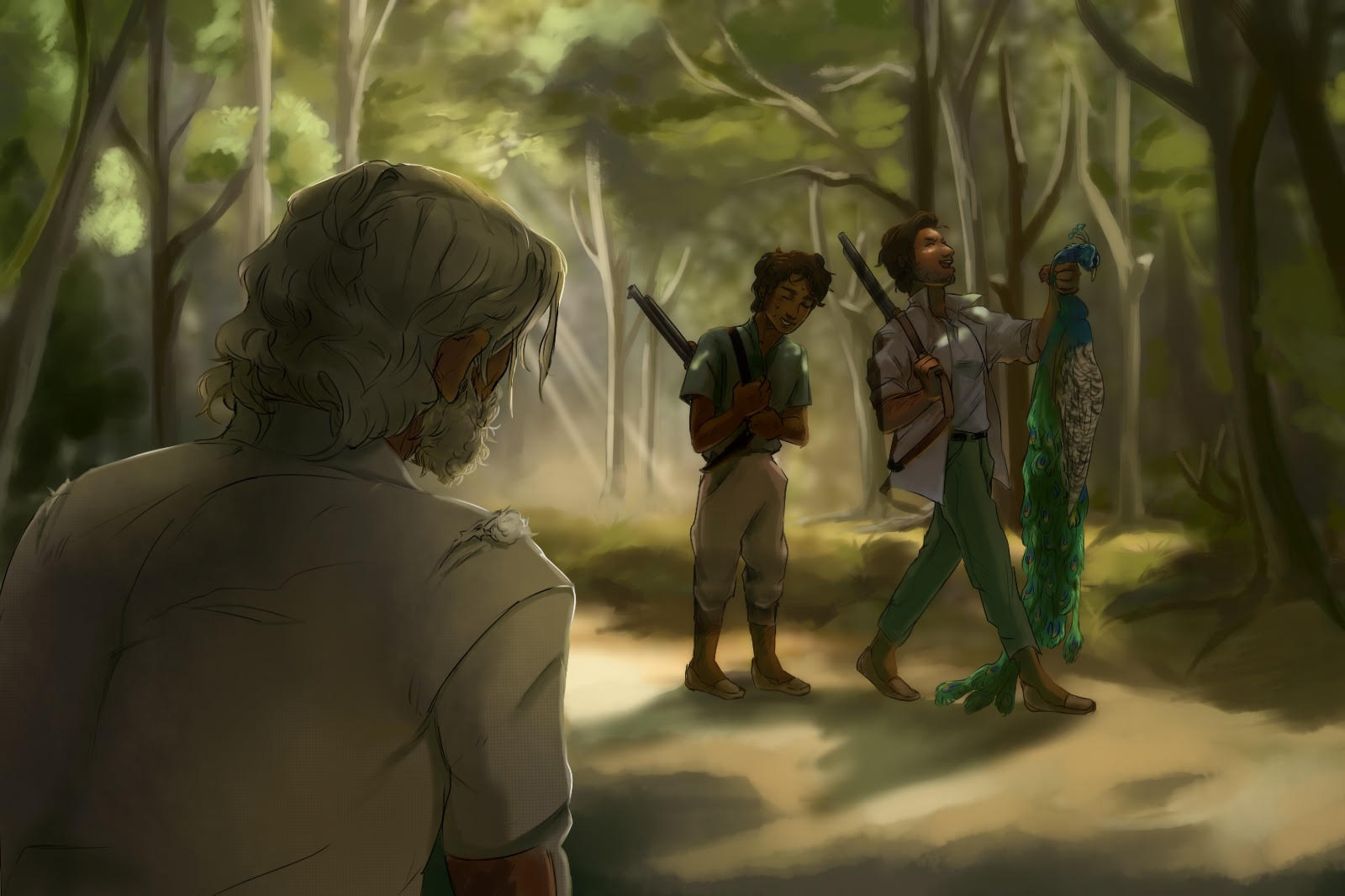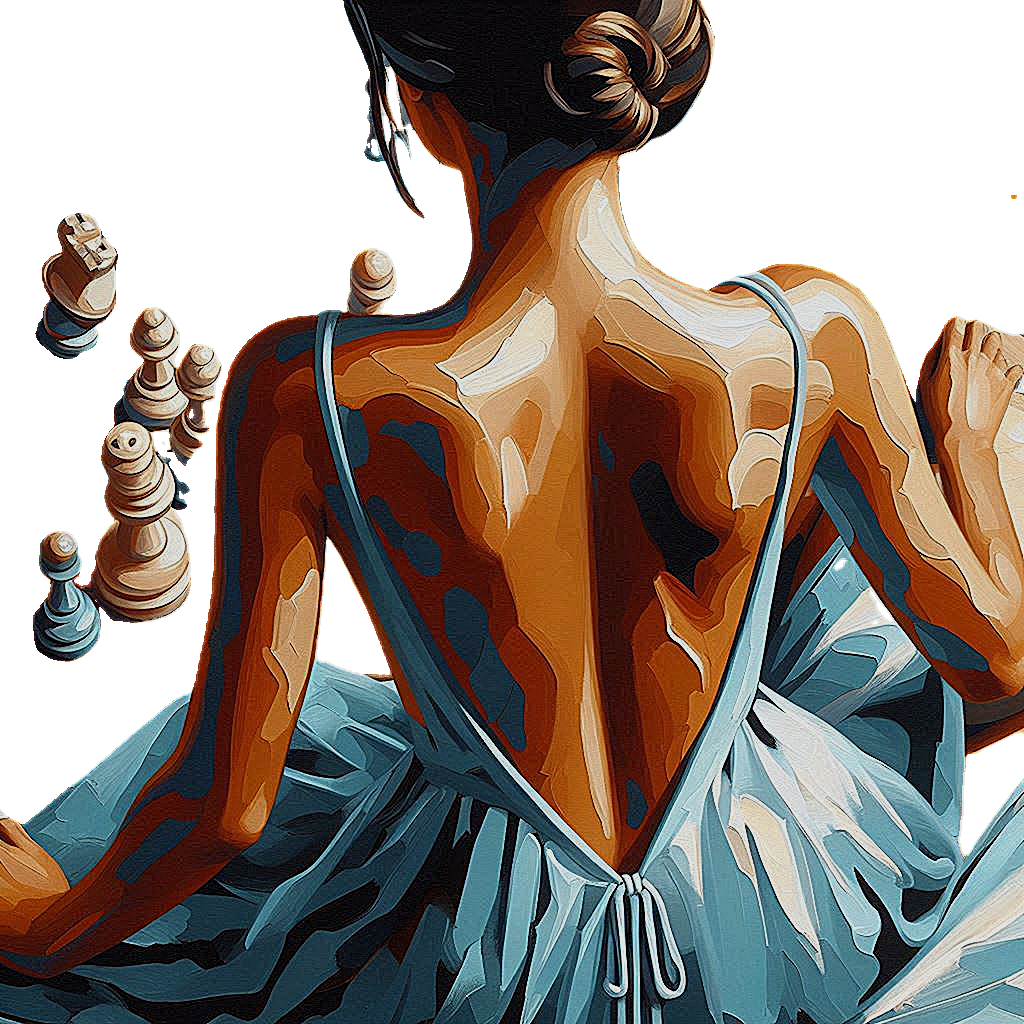
The Mysterious Tramp
When Ummed Ali came to this North Indian village, Johripuram, sixty kilometers from the National Capital New Delhi, people made bitter lines on their faces in scowl and scorn. Understandably so: he was a vagabond, a beggar with a long untidy beard and a bushy mustache. The old man’s hollow cheeks, wrinkles criss-crossed all over his face, were un-admiring. But above all, he was extremely smelly. Pungent and foul. And mentally unstable.
Some said he’d come from the land of fairies. A few others said he was from a land other than Earth. Some opined him to be a refugee from across the border. Some even suspected him to be one possessed by an old witch and that he carried her orders. The village headman thought him a love-crossed soul that had denounced the world. So all kinds of speculations were rife. Just conjectures. No concrete proof.
His clothes were all in rags, including a tattered coat and a set of horribly filthy trousers. It seemed he never washed them. Or never got time, space, or water for doing so. His shoes had all his toes exposed out through them, from the front, and both heels gone. Thus far, he appeared to have never taken a shower in his whole life.
Most of the villagers stood at a considerable distance from him as he approached them to beg; often they shooed him away. Women gave him food but kept themselves at a safe distance. Street dogs welcomed him with a gross insult. That he never minded.
He was only loved by domestic flies, which wreathed about him almost all day long; never leaving his side except at night. He didn’t care and allowed them to do their usual spinning around him,. not bothered even to wave them off with his roughened hands.
Ummed never knew what was the meaning of his name: hope. No one ever knew where he had come from or bothered to know.
Never told it when asked. Just seemed to have appeared, emerged from the thin air, one fine December morning. They thought he would go away by dusk. He didn’t.
When evening shadows began to grow bigger, he started begging for shelter to pass the night. Most of the villagers had refused when, finally, he knocked on the door of a hunter’s family. Aijaz the hunter, with his friends, was hunting partridges in the dark woods of Milkana. His sister, Kauser, , was at home alone at the time. Close to aging but still unmarried, rumors were rife she had a couple of love interests, but neither of them could last long or materialize into a nuptial knot, for she was neither pretty nor educated. Aijaz was a widower. His children settled in the National Capital.
Poor woman was always busy, for hunter Aijaz had a large friends’ circle that dined there, in the ancient dilapidated mansion. Once they were affluent nawabs, now they lived just hand to mouth. Presently, she was cooking pigeons’ meat for the extended family, as the new visitor arrived.
He begged for shelter and Kauser did not find any reason to say no to him. She had a good heart since a horrible incident. As a teenager, she was saved from drowning in Gang Nahar by an unknown young man. It flowed treacherously by the side of Bulandshahar and Anoopshahar, two small districts in the North.
Though the incident took place a long time ago, in her memory it was still fresh as if it happened today. It gave a new life to Kauser, turning her as helpful and cooperative to all and sundry.
In the backyard of the house under a Pilkhan tree lay a neglected jute charpoy, which was immediately occupied by Ummed Ali. As a surplus, Kauser gave him an ancient blanket, out of service for decades. As the meat was cooked, he was served in an old Chinese bowl. A plastic bottle, filled to its capacity with hand-pump water was also offered to him, that he at once grabbed to drench his thirst.
Ummed Ali never expected such hospitality. The moon and the stars began to glitter the village sky and, by this time, the group of hunters was back with their kill. A peacock, two brown partridges and three waterhens was their today’s accumulation. They passed him holding their rifles and happily discussing their good shots at their prey that one of them carried in a blood smeared cloth-bag. Didn’t even bother to have a look at their guest. He sat staring languidly at the glittering galaxy of stars.
When it was time to sleep, the old ragamuffin got up from his jute charpoy, took out his coat and hung it on a nail jutting out from the back-wall of the hunter’s house. Then he lay down in his cot and drifted off in five minutes.
***
Next morning when he got up in a good season, he received to his surprise a cup of brewing milk-tea followed by a moderate breakfast. Now it was time for begging, so he got ready and went around the village. In the afternoon he got his lunch at a farmer’s house and then resumed his begging business again.
Before the end of the day he began to look for a wine shop and didn’t have much trouble spotting one. It was a makeshift facility running under a thatched roof. He approached it, self-assured. His appearance was a guarantee to seek help from anywhere, even if it was for getting some free liquor.
As the sun went down in the far west, Kauser was thinking that the man was probably gone but, at the same moment, he entered the backyard and occupied his place. He was served his supper at night as previously and retired.
In a week, the whole village became acquainted with Ummed Ali. Kauser never felt him a burden. When the neighbors enquired of him, she simply said, “It is perhaps God’s will that he should get his food and shelter here at our place.”
In a fortnight, street dogs began to accept him as one of the villagers. They ignored him now as he passed them. Villagers called him by his name, sometimes mispronouncing it, but he didn’t seem to care. They talked with him without a frown. He was now an accepted member of this society. Johripuram proved helpful and generous to the poor vagabond. Now this place was his.
***
Winter began to show its longer ivory teeth as Christmas arrived. The ancient blanket now was of little or no comfort. With the coming of mist and fog, the mercury went down and Ummed Ali’s teeth rattled around midnight. His high-pitched shivering moans reached the ears of the hunter’s family.
Kauser tossed in her bed, disturbed. What more should be done for the impoverished tramp? After a while, she appeared in the backyard holding in her hands a sigri, the brazier, with burning coals in it. She called him by his name. Ummed Ali’s eyes glittered in the glint of the burning coals as Kauser handed it to him for warmth, a shield against the bones unsettling cold. He immediately grabbed it like a drowning man grabs a rope thrown to him.
Kauser went back to her room, feeling happy that now the old man might get some respite from the biting cold and will not wake up with possible fever on Christmas, tomorrow.
Ummed Ali took the sigri under his blanket and in a few minutes, he was so warm he felt sleepy. Lest the brazier turned over and the burning coals should spread on his sleeping clothes and burn them, he took out the sigri and put it aside on the ground near his old charpoy.
Recalling something, he got up from his cot and went up to where his tattered coat hung. From the first pocket, he retrieved Tohafā, a quarter of the cheap desi wine. He had begged it today from Theka Desi Sharab, the local wine shop running under the thatched roof, at the far end of the village. He was their regular visitor now.
A little less than half of the quantity was still left in it. He uncapped the slender bottle and took two heavy drags, then a third one emptied the container. He shook it to make sure nothing more was left inside, and then threw Tohafā into the garbage bin. He returned—now more confidently—to his charpoy and lay down.
As he tried to sleep, Ummed Ali realized to his horror that his bed was cold once again. He repeated the pattern but with no comfort. Finally, he got an idea. Lifting the sigri once more, he put it, this time, under his charpoy so as to continuously get the much-needed warmth from under his cot. Satisfied, he was now well shielded against the fierce December’s cold night.
The trick worked well and soon he felt the warmth and comfort, in his blanket, that he badly needed to fight the freezing winter. He didn’t know at what time he drifted off to sleep.
***
The ancient jute of the charpoy’s seams had some loose ends that suspended underneath. Ummed Ali was totally unaware that they were dangerously close to the brazier.
In the dead of the night as the whole village slept soundly, including the tramp, two suspended ends of the jute-veins caught fire from the sigri’s bloody coals. The heat flared up, increasing the temperature of the charpoy. The old man covered himself tightly in his blanket not realizing (being under influence of the cheap desi wine) the increasing heat and approaching danger. The fatal death threats. The charpoy in fifteen minutes or so came alive and became a burning pyre.
As the neighbors heard Ummed Ali’s heart piercing screeches, initially they thought they were watching a nightmare. But when they realized its reality and sprang to their feet and rushed out of their houses, they saw the burning man running helter-skelter and pleading for help.
Kauser, with the help of a couple of neighbors, doused the fire as hunter Aijaz looked on, for he still considered himself a nawab. His friends, too, were not around tonight. And it was beneath his dignity to do any menial work,. let alone save the life of a poor tramp. Once, hunter Aijaz, chasing a chinkara, had accidently fallen into an ancient well in the dark woods of Milkana, and was rescued by villagers. But unlike his sister, he didn’t transform.
At once, a man was sent for the village doctor, but Ummed Ali was ninety percent burned and could not be saved. He succumbed to his very bad burning.
In the morning, the entire village, led by the village headman, paid floral tributes to the fine old beggar.
Ummed Ali was given a respectable burial in the country graveyard by the village men. Women mourned for him and the dogs missed his presence around. The domestic flies looked about with disappointment for their prized man they so much admired spinning around.
***
As Kauser cleaned the backyard that evening, she realized the old tattered coat of the deceased still hung from the nail in the wall. She took it off to throw it in the garbage bin, but at the last moment, on an impulse, decided to check first the pockets of the battered coat. Frisking through it that was emitting a foul odor, she felt something thick inside, along with the clanking of some change. She became suddenly curious about the dirty old piece of rag. “What can it be?” she thought.
Kauser reached her hand inside the first pocket and what came out, she could not believe her own eyes: two thick wads of paper currency. Each bill was two thousand rupees denomination. She dashed into the house, with the coat in her hand,. switched on the light, and checked three other pockets, too. Thoroughly. Each one of them contained more wads of notes. Pink pure currency. It took her some time to count the money. When she finished, she found it was close to a million rupees.
“Was Ummed Ali really a beggar?” Kauser thought, the tattered coat of the mysterious old man now laying beside her. There was no answer to her question. She sat dazed on the edge of her bed with eight wads of bills in her lap. Gandhi’s picture with his bald head on all of them seemed to be smiling at her. Perhaps God had helped her for her selfless service she’d rendered to the old tramp, like she was helped in the River Ganges by the unknown young man or she would not be alive today.
Decades after this incident, the people of Johripuram still talk about Ummed Ali. They’d never realized his old rag smelly coat was worth a million rupees. Kauser married off to a wealthy civil contractor and settled in another village. Hunter Aijaz died long ago of a severe heart stroke in a police lockup, while facing charges for killing endangered species.
Sometimes, his sister tells the tale of the weird old beggar to her three toddlers, who listen with awe and profound wonder. It’s still an enigma unsolved — who Ummed Ali was. The Questions at large? Unanswered. As is always the case with the human world filled with such strange people and their weirder tales.
Suggested Reading
-
about Lollipop, Lollipop![Lollipop]()
Featured • Fiction • Nonfiction
Lollipop, Lollipop
The figure moved slowly, deliberately, its shrouded head turning towards Josh. Those eyes—sharp and frigid as icepicks—stared at him. The man’s black lips never moved, even as a word pierced him like a yell: “Beware.”
Featured • Fiction • Nonfiction
-
Featured • Fiction
-
Fiction



